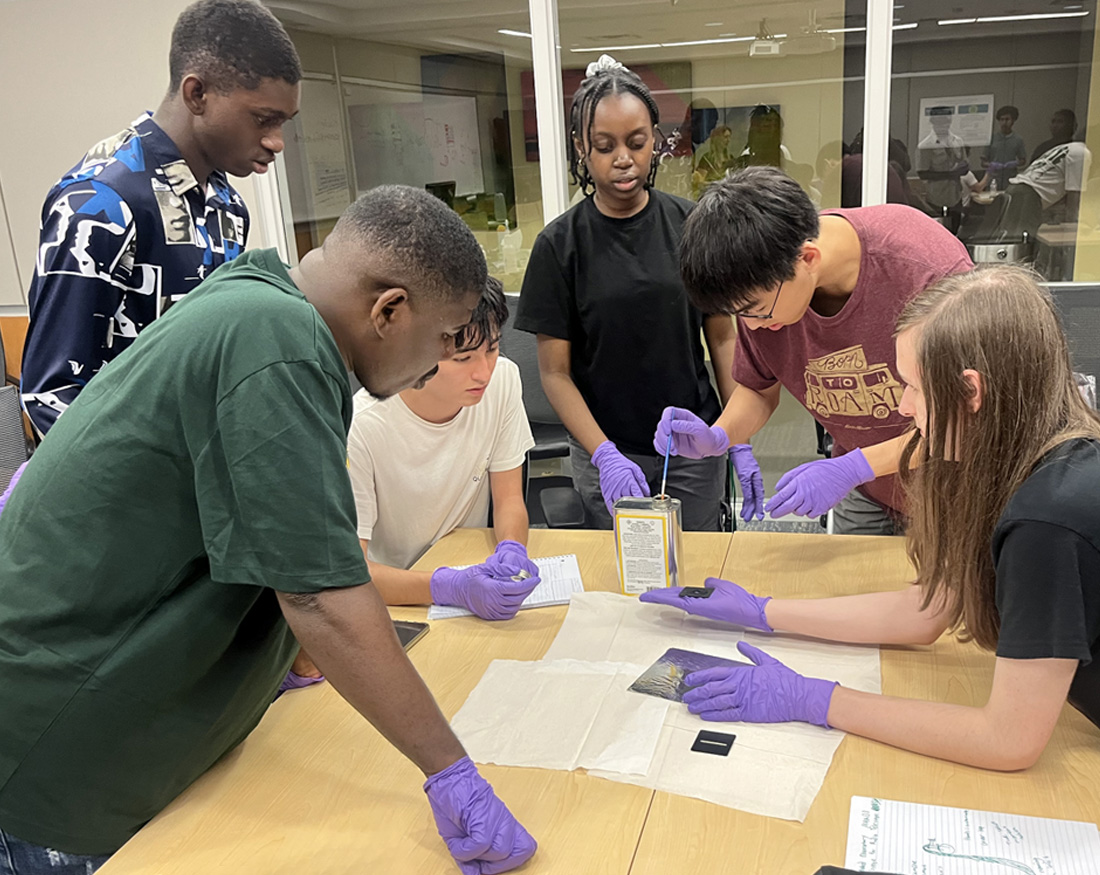
About PING
At PING, students present their work at key conferences, including the National Society of Black Physicists and the American Physical Society Division of Nuclear Physics.
PING offers three distinct experiences:
- Nuclear Physics Experience: This two-week summer program at FRIB in East Lansing, Michigan, provides exposure to basic and applied nuclear physics, with the option to extend into a year-long research opportunity. Established in 2019 and fully funded by the National Science Foundation since 2020, participants present their research annually at the NSBP meeting and the American Physical Society Division of Nuclear Physics, while collaborating with the MoNA Collaboration.
- Radio-Astronomy Program: This two-week summer experience through the Physicists Inspiring the Next Generation (PING): Investigating the Cosmos at the Green Bank Observatory in West Virginia focuses on radio astronomy. Participants present their work at the NSBP meeting, the National Astronomy Consortium meeting, and the American Astronomical Society.
- PEGASUS Weekend Trips: Designed for undergraduate students, these weekend trips to major institutions address preparation and transition to graduate school.
Why sign up?
- Dive into college-level research
- Explore different majors
- Clarify your education goals
- Shape your career plan
- Build lasting connections
- Boost your time-management skills
- Discover agriculture's role in physics
- Enhance your presentation abilities
- Tour the Facility for Rare Isotope Beams
- Join in on a talent show
Past programs
PING 2024 was held 15-27 July 2024.
Learn more about past PING programs here.
Please email us for questions or more information regarding PING.

